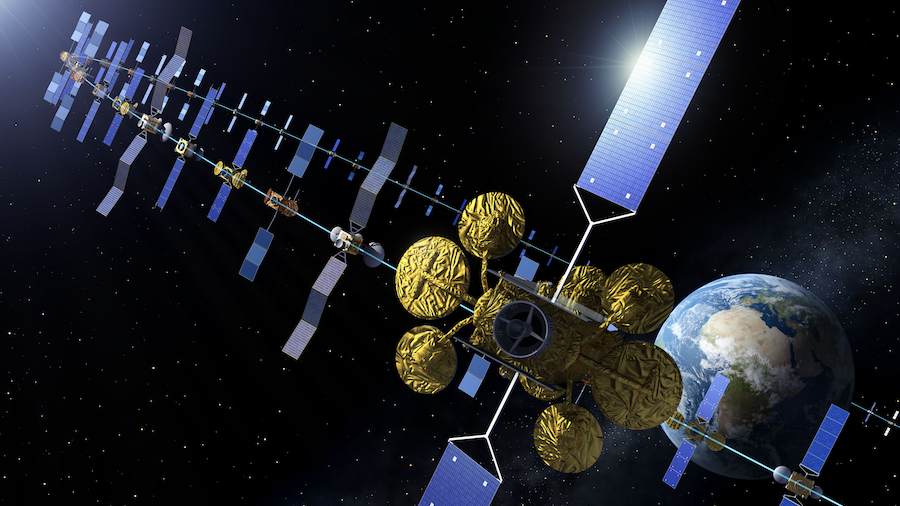Russia blamed for Viasat network cyberattack
Attack occurred in the hours before the invasion

The European Union, United States, and the United Kingdom have officially blamed Russia for the cyberattack against the American communications company Viasat, which took place on the day of the Russian invasion of Ukraine.
The Council of the European Union issued a press release in which, together with its international partners, “strongly condemns” the attack on the satellite KA-SAT network, operated by Viasat.
The attack was aimed primarily at the Ukrainian military but there was plenty of collateral damage, with thousands of civilian Viasat customers in Ukraine, as well as “tens of thousands” of customers across Europe all experiencing internet disruptions.
Share your thoughts on Cybersecurity and get a free copy of the Hacker's Manual 2022. Help us find how businesses are preparing for the post-Covid world and the implications of these activities on their cybersecurity plans. Enter your email at the end of this survey to get the bookazine, worth $10.99/£10.99.
AcidRain wiper used
What’s more, remote access to almost 6,000 wind turbines in Germany was also disabled.
“This unacceptable cyberattack is yet another example of Russia’s continued pattern of irresponsible behavior in cyberspace, which also formed an integral part of its illegal and unjustified invasion of Ukraine,” the announcement reads. “Such behavior is contrary to the expectations set by all UN Member States, including the Russian Federation, of responsible State behavior and the intentions of States in cyberspace.”
Independent cybersecurity researchers are saying the Russians used wiper malware called “AcidRain” in the attack. AcidRain can remotely erase vulnerable modem endpoints.
Even today, more than two months since the start of the invasion and the cyberattack, the attack has not yet been fully remedied. “Tens of thousands” of terminals were destroyed in the attack, and their replacement is going to take a while. So far, Viasat has shipped some 30,000 routers to affected customers, it said.
Sign up to the TechRadar Pro newsletter to get all the top news, opinion, features and guidance your business needs to succeed!
The internet has proven to be the second front in the war between Russia and Ukraine. While hacktivists Anonymous, as well as numerous other hacking groups, used their skills to bring censored content to the Russian people, Russia has walled off its internet, tightly controls the media, and engages in cyber-espionage and destructive campaigns against Ukrainian infrastructure, government agencies, and their allies.
Via: TechCrunch
Sead is a seasoned freelance journalist based in Sarajevo, Bosnia and Herzegovina. He writes about IT (cloud, IoT, 5G, VPN) and cybersecurity (ransomware, data breaches, laws and regulations). In his career, spanning more than a decade, he’s written for numerous media outlets, including Al Jazeera Balkans. He’s also held several modules on content writing for Represent Communications.
